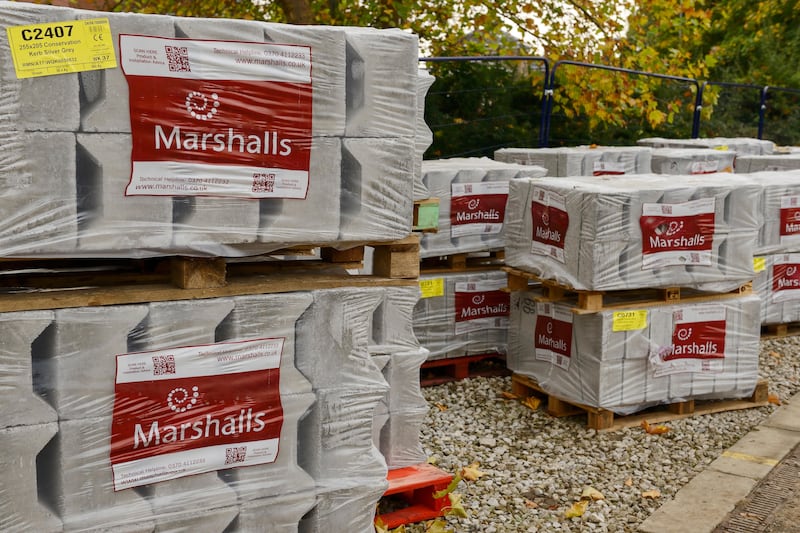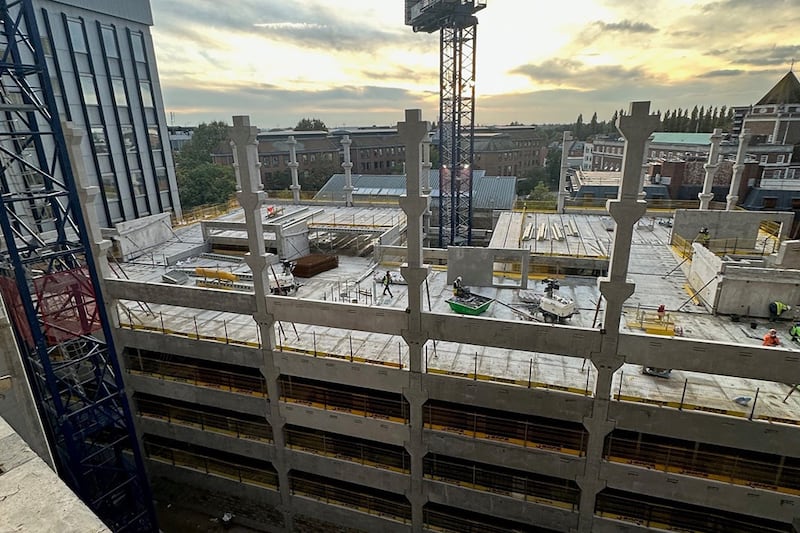PLUMMETING workloads for Northern Ireland’s builders suggest the alarm bells should be ringing for the sector, according to a state-of-the-trade survey from the Federation of Master Builders (FMB).
And in the UK as a whole, construction industry bosses are reorganising their workforce in preparation for a potential downturn, with higher levels of sub-contracting and lower levels of direct employment.
The latest FMB study looking at activity in April, May and June - traditionally a busy period for construction - revealed employment levels among small building firms across the UK dipped for the first time in more than five years, with a fifth (21 per cent) of employers reporting a reduced workforce.
In Northern Ireland, in terms of the overall score for workloads, expected workloads and enquiries, the was a significant drop of 44 percentage points compared to the previous quarter, and NI is the only home nation to see its construction SME sector in decline.
The survey showed that bricklayers are the trade in shortest supply, with 60 per cent of construction SMEs struggling to hire these tradespeople and 54 per cent struggling to hire carpenters and joiners.
Gavin McGuire, director of FMB Northern Ireland, said: “Builders here are struggling compared to the rest of the UK, and it's highly concerning that the market is actually shrinking.
“Alarm bells should be ringing in all of our ears as if we experience a sustained downturn, we could lose capacity in the local construction sector for good.”
He added: “Builders continue to tender for work but clients are unwilling to commit to significant projects as we all wait with bated breath to see how Brexit plays out, and whether a way forward is found in terms of the deadlock at Stormont.
“Local builders are the bedrock of the entire construction industry and train two-thirds of all construction apprentices. Without them, the industry cannot deliver the homes Northern Ireland so desperately needs.”
Mr McGuire added: “In order to boost the market here and avoid any long-term loss in capacity in the construction sector, local authorities with planning functions must work with industry to speed up the planning process as a matter of urgency.
“For larger developments, it takes an average of 59 weeks for a planning application to receive a decision. This is an unacceptable amount of time when you consider that these delays act as a break on economic growth and the delivery of new homes.”
FMB chief executive Brian Berry said: “Years of Brexit uncertainty have resulted in construction bosses starting to change how they employ their workforce.
“To ensure their firms are ready for any economic shock-waves later this year, employers are reducing their number of direct employees and relying more on sub-contractors who are easier to shed if work dries up.
“The construction industry has always used a significant proportion of subbies but the fact that direct employment is decreasing, points to Brexit nerves among construction bosses. Worse still, the fear is that using more subbies can lead to a drop in the quality of our builds.”







